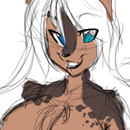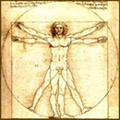I would like to apologize in advance for sounding overly arrogant and such in this post. My attacks to your theory are going to sound far more aggressive than they really are due to the nature of textual communication. I know bringing up dictionary definitions is going to make things even worse, but you seem to be taking liberties with the English language to help your theory, and I'm trying to tell you that the English language doesn't work like that. Also, please note that I am in no place attacking you personally, though at some points it may seem that way depending on how you read this. Anyway...
He was referring to the people who "defied the gods with petty magic". This statement refers to the Twili's ancestors; not the Twili themselves.
Your people have long amused me, Midna. To defy the gods with such petty magic,
only to be cast aside... How very pathetic.
Pathetic as they were, though, they served me well. Their anguish was my
nourishment.
Their hatred bled across the void and awakened me. I drew deep in it and grew
strong again.
Your people had some skill, to be sure...but they lacked true power.
The kind of absolute power that those chosen by the gods wield.
He who wields such power would make a suitable king for this world, don't you
think?
I didn't say that particular line wasn't referring to the ancestors, what I said was that his statement in its entirety was referring to the Twili in general, past and present. He called them pathetic with the comment: "To defy the gods with such petty magic, only to be cast aside... How very pathetic." It's also worth noting that he calls them Midna's people.
http://www.m-w.com/dictionary/yourBy my understanding of the English language, I would take Ganon's referring to them as Midna's people to mean that Midna belongs to the group of people he is referring to, or Midna rules the group of people he is referring to. As such, I take his statement to be referring to Midna's people in general, not a singling out the ones his comment about "defying the gods with such petty magic" applies to. The ancestors belong to the group he's referring to, but the entire statement may not in reference to the ancestors.
First of all, Auru's quote can be read in two different ways (the extra text is in italics):
-This desert at world's end... It still holds the cursed mirror and the malice of the doomed inmates inside of it...
-This desert at world's end... It still holds the cursed mirror and the malice of the doomed inmates as well...
http://www.m-w.com/dictionary/andI see no definition of the word "and" that makes the addition of "inside of it" unnecessary, but the definition of the word does make the addition of "as well" unnecessary, as that's pretty much what the word "and" means. Please explain what word in Auru's sentence implies that the mirror contains the malice, because the only connection I see between the two in that sentence is the word "and" which only implies to me that the statement "This desert at world's end... It still holds" applies to both "the cursed mirror" and "the malice of the doomed inmates." If there's some definition of the word "and" that I'm missing, could you please point it out to me?
Of course, if you talk to Auru inside Telma's Bar (after beating the Arbiter's Grounds), he then talks about the "accursed mirror" again
http://www.m-w.com/dictionary/accursedYou're using the English language in reverse. the word "accursed" could be used to describe something that contained malice, but that does not mean something described as "accursed" must contain malice.
Secondly, the "undeads" you are referring to are officially called "Redeads", which according to OoT, are not actual corpses but manifestations of Ganondorf's magic. As for the poes, they are spirits normally aligned with evil (and therefore Ganondorf). The Poe sisters in OoT, for example, were not residents of the Forest Temple but dark servants of Ganondorf. Then if you look at the skulls in the Arbiter's Grounds, none of them are actually human.
Malice means Hatred. It's not a direct reference for the undead. And the term "still holds" is simply referring to the fact that the Twilight Mirror "still holds" the malice of the Twili's ancestors. Hence, it's evil power manifests into monsters and transforms Yeta.
Actually, when I talk about a haunted prison I'm mostly referring to the ghosts, with the other undeads kinda clumped in with them. Now, as for the poes themselves, we're not talking about "The Poe Sisters" here, we're talking about "Earthbound Prisoners." Yup, they're called "Earthbound Prisoners." As for the Re-Deads, Stalfos, Bubbles, Cursed Sword, and Skeleton Army: I'd like to point out that the Armos in TMC were "Built by the Minish for the Wind Tribe long ago," yet have appeared in several Zelda games that make absolutely no mention of the Minish or the Wind Tribe. The Armos of TMC may have been built by the Minish, but the ones from other games seem to have different origins. It's quite possible that these Re-Deads (as well as the rest of the undeads) truly come from dead people. Of course, even without the zombies and skeletons and such, you still have the "Earthbound Prisoners" to explain.
Ganondorf was captured by the Sages, chained to a rock and then stabbed with a blade of light, yet was unable to resist. Then the Triforce of Power resonated, and Ganondorf was able to break his chains, pull out the sword and kill one of the Sages. To get from a weakened state where the Sages could capture him to a powerful state where he could kill the Sages is called an "empowerment".
My main point was that Ganondorf's quote didn't work in the context of that scene, so I'll just let this slide. My post is going to be really long anyway.
Likewise, you read one quote about Zant possessing malice and took it to mean that malice was that which empowered Ganondorf, when that entire scene did not show any such empowerment at all. After all, Ganondorf approached Zant and offered him his power with words that mimicked the Triforce in ALTTP's manual. The Triforce represented absolute power, just as Ganondorf did to Zant.
No, no I didn't. I never said it was Zant's malice that empowered Ganondorf, I simply said the malice didn't come from the mirror.
Ganondorf was in the presence of the Twilight Mirror when he changed from a weakened state to an empowered state. We know at least that he was "empowered" at that moment. Then he tells us not that Midna's current people empowered him, but that the tribe who "defied the gods with petty magic" (Midna's ancestors) empowered him. We also know that the Twilight Mirror possessed evil power, which is aligned with malice because Ganondorf's evil power WAS malice! Therefore, everything connects around that one scene.
Ganondorf tells us not that Midna's
current people empowered him, but he also tells us not that Midna's
past people empowered him. He tells us that Midna's
... people empowered him. The statement was not exclusive to past or present, though certain parts of the statement were.
It's very simple. Ganondorf was in a weakened state when he was taken to the Arbiter's Grounds, hence the Sages captured him beforehand and stabbed him with a blade of light. The malice that the Twilight Mirror possessed empowered Ganondorf, causing the Triforce of Power to resonate and Ganondorf to survive his attempted execution. As for exactly what the void is, that is up for interpretation. Perhaps it represents a gap between the world of Hyrule and the afterlife, where the Twili's ancestors now live.
Yay for creative use of the English language!!! I'm not buying it. Almost every piece of evidence you have to support your theory is based on a leap you made, a prime example being the leap you made from "It still holds the cursed mirror and the malice of the doomed inmates" to "It still holds the cursed mirror and the malice of the doomed inmates inside of it." The theory is not based on implication or inferrence.
Edited by BourgeoisJerry, 31 January 2007 - 04:26 AM.


















